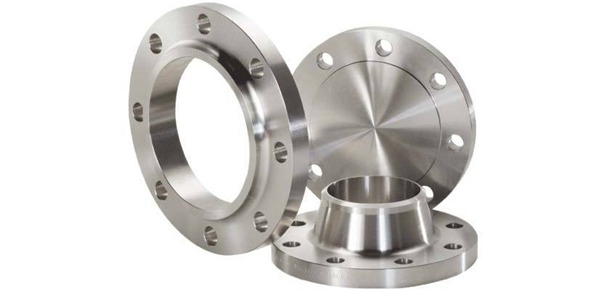Inconel 718 is a superalloy that has shown its worth in a wide range of applications. It has exceptional strength, good corrosion resistance, excellent welding capabilities & high-temperature performance. Inconel 718 flanges are commonly used in the aerospace, oil and gas, chemical, and food processing industries.
What are Inconel 718 Flanges?
Inconel 718 Flanges are fittings that are used to connect two pipes, valves, or pieces of equipment in an industrial process. Inconel 718 is chosen as the material of construction due to its excellent mechanical properties, good weldability, and resistance to high-temperature & high-pressure environments. Inconel 718 flanges can be supplied in different shapes, sizes, and pressure ratings, such as slip-on, weld neck, socket weld, and threaded flanges.
Types of Inconel 718 Flanges
Inconel 718 flanges are available in various types, each with its specific design and features. The common types of Inconel 718 flanges include socket weld, threaded, slip-on, blind flange & weld neck. Socket weld & threaded flanges are typically used for small-bore pipes or low-pressure systems, while slip-on & blind flanges are for medium to high-pressure systems & the weld neck flange is the most robust type, suitable for high-pressure and high-temperature applications.
Applications of Inconel 718 Flanges
Inconel 718 flanges have a wide range of applications due to their excellent properties. They are commonly used in industries that require high resistance to thermal and mechanical stresses, such as aerospace, oil and gas, chemical processing, and food processing industries. In aerospace, Inconel 718 flanges are used for engine components, fuel system parts, and exhaust systems. In the oil and gas industry, they are used for pipelines, valves, pressure vessels, and drilling equipment. In the chemical and food processing industries, they are used for heat exchangers, reactors, and furnaces.
Advantages of Inconel 718 Flanges
Inconel 718 Flanges offer numerous benefits over other materials. They have excellent thermal stability and mechanical strength, making them suitable for high-temperature and high-pressure environments. They are resistant to oxidation, corrosion, and stress cracking, which minimizes the maintenance required. They are also easy to weld, which simplifies their installation process and reduces labor costs. They have a longer lifespan than other materials, which lowers the overall cost of the application.





Comments